What the EDI Strategic Plan means to us
Members of our collegiate University share their reflections and hopes for the EDI Strategic Plan

“In teaching the literatures of the ancient world, our challenge is to teach students intellectual self-awareness. For such an endeavour, EDI makes a natural and welcome partner. What most attracts me about the university’s approach to EDI is its willingness to encounter differences, even when they’re uncomfortable, and to recognise that this is a work in progress.”
Dr Adrian Kelly, Associate Professor in Classical Languages and Literature, Tutorial Fellow in Ancient Greek Language and Literature
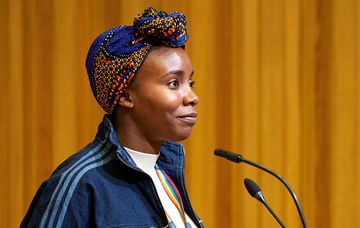
"The EDI strategy reflects the collegiate University’s shared commitment to ensure diversity is not just a goal but an ongoing practice. Guided by evidence-based developments and best practices, it provides a framework for how we can create inclusive outreach and access activities, support students on course and bring together academic and professional services staff.”
Vanessa Worthington, Outreach Development Coordinator (Black, Asian and Minority Ethnic Programmes)

"At the SU we strive to make every aspect of EDI a real priority for the University, and so we welcome the new unified strategy. We witnessed how minoritised communities can feel excluded, and we want to see bold action in making it clear everyone belongs."
Addi Haran Diman, President, Oxford University Students' Union

“As student leaders, the EDI strategy offers a vital framework to enhance our efforts in ensuring equitable student experiences. We are eager to actively engage with its objectives, particularly around promoting diversity, accessibility, and ensuring every student feels valued.”
Lauren Schaefer, VP PG Education and Access, Oxford University Students' Union

“Why is the EDI Strategy important to me? Simple – the two words of its title sum it up: ‘Everyone Belongs’. In the Bodleian, this idea helps inform our collections, our services and our staffing. For our students, researchers and staff to be successful they need to feel at home. We need everyone to feel they belong.”
Ant Brewerton, Associate Director for Academic Services and Keeper of Collections, Bodleian Libraries and Worcester College
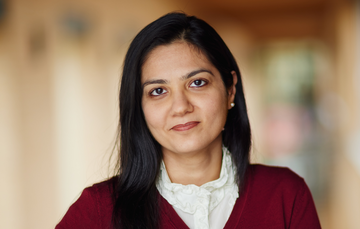
“As an organization studies academic, I strongly believe that having a shared understanding of who we are as a community and where we see ourselves going is key to creating an inclusive environment. The new EDI strategic plan is pioneering because it creates a set of shared values and vision that the Oxford community can live by and work towards in creating a culture of belonging.”
Mahima Mitra, Senior Lecturer in Organisation Studies (with special reference to Inclusion), Saïd Business School

“Plans and physical measures matter when it comes to organisational resilience, but people are the deciding factor. A sense of belonging and the breadth of knowledge, skills and experience found within truly diverse teams are the ingredients that provide the best chance of outperforming the competition during times of crisis.”
Neil Unsworth OBE, Head of Risk & Resilience

“As EDI Fellow at a college, it’s great to see tangible goals like access and governance highlighted in the strategy, but equally important to be reminded of the intangible things like fostering a sense of belonging throughout the entire university. I think the strategy should facilitate even greater cooperation amongst the colleges on these issues.”
Dr Sabrina Martin, EDI Fellow, Dean, and Politics Tutor at Keble College

“We’re encouraged to see the launch of the EDI strategy, which provides a strong foundation for positive change. We’re eager to actively engage with its objectives, particularly around promoting diversity, accessibility and ensuring every student feels valued.”
Eleanor Miller, VP UG Education and Access, Oxford University Students' Union

"There is such a tremendous amount of work going on across the collegiate University to advance equality, diversity and inclusion. I’m really excited about this Strategic Plan, which provides greater coherence to, and the potential for more coordination across, all our efforts."
Catherine Goodwin, Planning and Equality Manager, Social Sciences Division

"Equality, diversity and inclusion lie at the heart of what we do and what we can aspire to be. I warmly welcome our new EDI strategy as an essential framework for ensuring that we remain one of the world’s best places to live, study, work, teach and research."
Professor Dan Grimley, Professor of Music and Head of Humanities at the University of Oxford
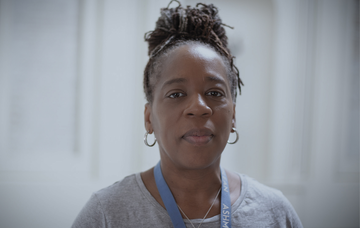
"The new EDI Strategic Plan will significantly support my work by providing a clear framework and actionable goals. The emphasis on fostering an inclusive culture and increasing diversity in leadership resonates deeply with me. I am particularly engaged by the vision of creating an environment where everyone feels valued and respected."
Beverley Harry, EDI Project Manager, Gardens, Libraries and Museums
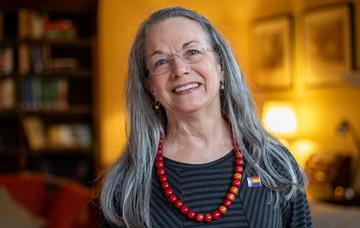
“The Strategic Plan’s objective of strengthening a culture of belonging is especially meaningful for us in the disabled community. One example: when accessibility provision becomes the usual way of working, non-disabled colleagues will see how fruitful this is, and it will inevitably lead to a positive change in the University’s culture.”
Dr Catherine Walter, Emeritus Fellow in Applied Linguistics, Linacre College, Co-Chair, Oxford University Disability Advisory Group

“As a People professional, the EDI Strategic Plan underpins all that we do at Oxford, from attracting exceptional talent, learning and development, reward and recognition, and the wellbeing of our staff. I look forward to harnessing our collective ambitions to build a community where everyone feels that they belong, and can thrive, at Oxford.”
Renu Gupta, Director of Talent and Deputy HR Director

“This Strategy outlines, for the first time, our shared goals, values, and priorities. In Medical Sciences, it will help us identify where our needs and ambitions are unique, and where collaboration will enable us to deliver more effectively. The Strategy, alongside local EDI Action Plans, provides institutional accountability, which is hugely important to achieving positive organisational change.”
Karla Miller, Professor of Biomedical Engineering, Associate Head of Equality, Diversity & Inclusion, Medical Sciences Division
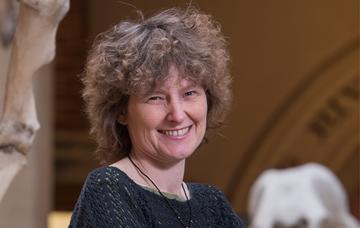
“One element of the EDI strategy that resonates particularly with me relates to our global outlook. The Global Equitable Oxford initiative challenges us to make our research and educational collaborations fairer, use our voice to advocate for equity, and rethink what excellence and global leadership really mean in the 21st Century.”
Professor E.J. Milner-Gulland, Tasso Leventis Professor of Biodiversity, Department of Biology
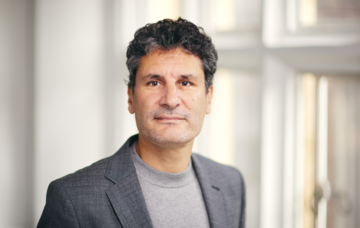
"Oxford’s commitment to becoming a world leader in Equality, Diversity and Inclusion is most welcomed. By joining together all the exciting initiatives already in place and setting clear objectives, the EDI strategy moves us closer to our goal. The fact that University and colleges are committed to working together should make the strategy particularly effective."
Professor Diego Sánchez-Ancochea, Professor of the Political Economy of Development, Associate Head for People, Social Science Division
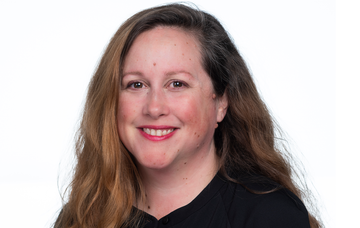
"The Open-Oxford-Cambridge AHRC Doctoral Training Partnership provides graduate students with unique opportunities to pursue research, engage in training and learn from each other. The EDI Strategic Plan’s objective to increase student diversity and representation aligns perfectly with our goals to increase diversity in humanities and equip doctoral students with skills to foster inclusive practices in their own research."
Jennifer Lockie, Open - Oxford - Cambridge AHRC DTP Manager at University of Oxford


